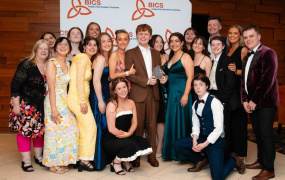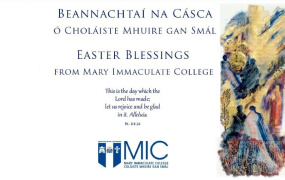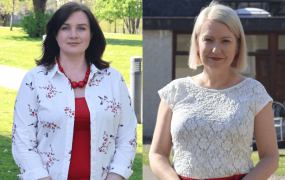Search
Use search box below to look for information on the Mary Immaculate College website. There are some helpful links to common search queries above it. Keep an eye out for the 'Ask a Question' function on certain pages and sections where you can pose specific queries to MIC staff (and see previous questions and answers underneath the question box).
The Parents’ Section of the Mary Immaculate College website is designed to inform you, as a parent or guardian of an MIC student, about college life and to help you support and guide the student through their college experience.
The Off-Campus Programme is a distinctive feature of the Bachelor of Arts degree at MIC providing mutually beneficial work experience placements for our students and placement provider organisations.
Learn more about the Off-Campus Programme which enables students to expand their knowledge and skills through study abroad and/or work placements.
Discover information literacy classes offered by the MIC library. The Library runs various classes to help build student skills in finding, using and organizing information. Help offered by the library will ensure that you can: Recognise your information needs, Identify ways of finding this information, Locate the information, Evaluate the source, and Reference correctly.
Initial results of a project underway in 140 schools nationwide, developed in partnership between Education & Training Boards Ireland (ETBI) and Mary Immaculate College (MIC), are making “the invisible visible” according to the Project Lead.
The MIC Institute of Irish Studies was launched in 2015 with the aim of establishing a strong and significant national and international footprint in the developing areas of Irish Studies.
Learn how MIC has established, and is home to and in partnership with, a number of research institutes and centres. These groups focus on areas in education and the liberal arts where MIC staff excel and aim to make a significant contribution to knowledge, policy, and other strategic objectives. They allow us to add an extra layer to what we do in academic life through collaboration, cooperation, communication, and connections between academics across multiple disciplines.
What is an institutional repository? An institutional repository is a place to store digital copies of scholarly work and make these materials freely and easily accessible. It is designed to collect the work of a particular institution (usually a university or college), as opposed to a subject or department specific repository.
The MIC Thurles Open Day on Saturday, 9 of November (10am -1pm), is once again attracting hundreds of registrations from aspiring post-primary school teachers from all over the country. The Open Day will offer a unique insight into college life at the campus and will feature an address from Dr Rebecca Saunders, Vice Dean of the School of Education (Post-Primary), campus tours and programme talks on available subject combinations in Business Studies, Accounting, Religious Studies, Gaeilge, Mathematics and the newest addition to the MIC Thurles’ provision – Home Economics.
The Inter-Library Loans service is a way for current Students and Staff of MIC Limerick and MIC Thurles to obtain research material which is not held in our college libraries or the University of Limerick Library. This service is available to: Staff, Postgraduate students, and 3rd/4th-year undergraduates (for Final Year Project).
Mary Immaculate College (MIC) has a vibrant international community, collaborating with more than 60 partner universities and colleges in Europe, North America and Australia, and hosting over 500 international students every year—primarily at its Limerick campus.










